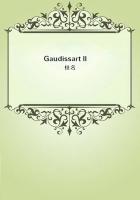It would always give us pleasure, and chime in with our feelings of fitness, that acts which we deem unjust should be punished, though we do not always think it expedient that this should be done by the tribunals. We forego that gratification on account of incidental inconveniences. We should be glad to see just conduct enforced and injustice repressed, even in the minutest details, if we were not, with reason, afraid of trusting the magistrate with so unlimited an amount of power over individuals. When we think that a person is bound in justice to do a thing, it is an ordinary form of language to say, that he ought to be compelled to do it. We should be gratified to see the obligation enforced by anybody who had the power. If we see that its enforcement by law would be inexpedient, we lament the impossibility, we consider the impunity given to injustice as an evil, and strive to make amends for it by bringing a strong expression of our own and the public disapprobation to bear upon the offender.
Thus the idea of legal constraint is still the generating idea of the notion of justice, though undergoing several transformations before that notion, as it exists in an advanced state of society, becomes complete.
The above is, I think, a true account, as far as it goes, of the origin and progressive growth of the idea of justice. But we must observe, that it contains, as yet, nothing to distinguish that obligation from moral obligation in general. For the truth is, that the idea of penal sanction, which is the essence of law, enters not only into the conception of injustice, but into that of any kind of wrong. We do not call anything wrong, unless we mean to imply that a person ought to be punished in some way or other for doing it; if not by law, by the opinion of his fellow-creatures; if not by opinion, by the reproaches of his own conscience. This seems the real turning point of the distinction between morality and simple expediency. It is a part of the notion of Duty in every one of its forms, that a person may rightfully be compelled to fulfil it. Duty is a thing which may be exacted from a person, as one exacts a debt. Unless we think that it may be exacted from him, we do not call it his duty. Reasons of prudence, or the interest of other people, may militate against actually exacting it; but the person himself, it is clearly understood, would not be entitled to complain. There are other things, on the contrary, which we wish that people should do, which we like or admire them for doing, perhaps dislike or despise them for not doing, but yet admit that they are not bound to do; it is not a case of moral obligation; we do not blame them, that is, we do not think that they are proper objects of punishment. How we come by these ideas of deserving and not deserving punishment, will appear, perhaps, in the sequel; but I think there is no doubt that this distinction lies at the bottom of the notions of right and wrong; that we call any conduct wrong, or employ, instead, some other term of dislike or disparagement, according as we think that the person ought, or ought not, to be punished for it; and we say, it would be right, to do so and so, or merely that it would be desirable or laudable, according as we would wish to see the person whom it concerns, compelled, or only persuaded and exhorted, to act in that manner.*
* See this point enforced and illustrated by Professor Bain, in an admirable chapter (entitled "The Ethical Emotions, or the Moral Sense"), of the second of the two treatises composing his elaborate and profound work on the Mind.
This, therefore, being the characteristic difference which marks off, not justice, but morality in general, from the remaining provinces of Expediency and Worthiness; the character is still to be sought which distinguishes justice from other branches of morality.
Now it is known that ethical writers divide moral duties into two classes, denoted by the ill-chosen expressions, duties of perfect and of imperfect obligation; the latter being those in which, though the act is obligatory, the particular occasions of performing it are left to our choice, as in the case of charity or beneficence, which we are indeed bound to practise, but not towards any definite person, nor at any prescribed time. In the more precise language of philosophic jurists, duties of perfect obligation are those duties in virtue of which a correlative right resides in some person or persons; duties of imperfect obligation are those moral obligations which do not give birth to any right. I think it will be found that this distinction exactly coincides with that which exists between justice and the other obligations of morality. In our survey of the various popular acceptations of justice, the term appeared generally to involve the idea of a personal right- a claim on the part of one or more individuals, like that which the law gives when it confers a proprietary or other legal right. Whether the injustice consists in depriving a person of a possession, or in breaking faith with him, or in treating him worse than he deserves, or worse than other people who have no greater claims, in each case the supposition implies two things- a wrong done, and some assignable person who is wronged. Injustice may also be done by treating a person better than others; but the wrong in this case is to his competitors, who are also assignable persons.















